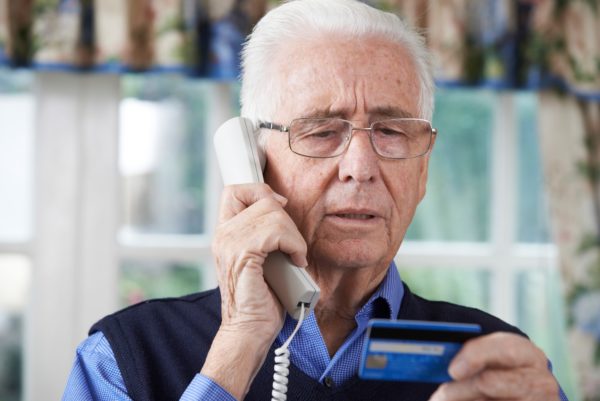Financial Abuse and Exploitation
By Wendy Liebling, MSW, LSW, C-ASWCM
 Financial abuse and exploitation of older adults have reached epidemic proportions, with losses in the U.S. reaching up to $36 billion per year. Pennsylvania, with the third highest population of older adults in the US, is poised to suffer disproportionately from these scams and identity theft. They bring emotional costs and potentially devastating loss of lifetime savings and financial ruin.
Financial abuse and exploitation of older adults have reached epidemic proportions, with losses in the U.S. reaching up to $36 billion per year. Pennsylvania, with the third highest population of older adults in the US, is poised to suffer disproportionately from these scams and identity theft. They bring emotional costs and potentially devastating loss of lifetime savings and financial ruin.
The perpetrators of financial abuse and exploitation use any number of approaches to reach their targets among the aging population, most commonly by phone, internet, door to door ‘sales’ and medical channels. Creative tactics and emotional pleas are key tools, as they prey on the fears and vulnerabilities of adults who may be suffering from cognitive decline, are unable to assess the inherent risks, and are often drawn in by an emotional appeal. Not surprisingly, exploitation occurs at the hands of family, friends and strangers.
In 2015, the White House Conference on Aging made “Elder Justice” one of its areas of focus. A government working group known as the Elder Justice Coordinating Council which includes the Department of Justice, Health and Human Service’s Administration for Community Living, and the Consumer Financial Protection Bureau’s Office for Older Americans, teamed up to gather data and create materials for professionals and family members.
Avoiding Exploitation
Two key approaches can help reduce chances of being exploited.
- Arm yourself with information available through the state Office of the Attorney General. Among the offerings in Pennsylvania is a Senior Crime Prevention University.
- Be attuned to signs of exploitation. Common areas to monitor include banking, lotteries, travel prizes, telemarketing, household repair scams, medication/pill shorting, double billing, price-gouging and up-charging, unbundling of test fees, Medicare fraud, transport/ambulance fraud, enrollment fraud and scooters.
Do These Things
- Monitor banking for signs of unusual financial activity.
- Talk with the older adult to warn them of fraud, scams and exploitation.
- Maintain a health care calendar documenting when/where services were used. Check for accuracy.
- Remain attentive to who and why people are calling the home.
- Remove the social security card from the wallet and store it in a safe, secure place.
- Avoid entering sweepstakes.
- Do not reply or respond to email inquiries, also called ‘phishing.’ Particularly from unknown senders, do not click on links in emails or open attachments unless absolutely confident in the identity of the source.
- Do not respond to phone solicitations or inquiries initiated by others.
If You Suspect Foul Play
Fraudsters and scammers are very difficult to track down and prosecute. If you become concerned or suspicious of a potential scam, or you detect signs of exploitation, contact your local police department and report your concerns. Utilize the state Attorney General’s office as an education resource.
Remember, if it seems “too good to be true,” it usually is.
This article was first posted on August 12, 2016, and was updated on July 25, 2018.
![Mid-Atlantic ALCA [logo]](https://www.midatlanticalca.org/wp-content/uploads/sites/286/2018/09/logo2.png)